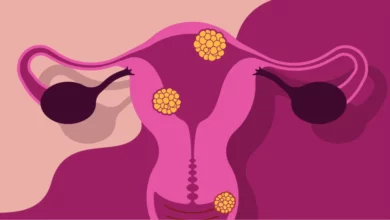Top signes that you have magnésium deficiency what to do about it
Medical disclaimer. The content provided is for informational purposes only and is not intended to provide medical advice or to replace medical advice received from a physician.
Did you know In power, 90 percent of people are estimated to be deficient in magnesium. Because the mineral is responsible for more than 300 biochemical reactions in the body and affects blood pressure, metabolism, and immune function, access to nutrient stores is important.
What exactly is magnesium?
Magnesium is a mineral found in land, sea, plants, animals and humans. Most (60%) of the magnesium is found in your bones, while the rest is in your muscles, soft tissues and fluids. Every cell in your body needs magnesium to function. In fact, one of the main roles of magnesium is to act as a cofactor or “helper molecule” in the biochemical reactions performed by enzymes, reports Healthline.
Magnesium is involved in energy formation, protein formation, gene maintenance, muscle movement, and nervous system regulation. Therefore, adequate magnesium intake should be on everyone’s priority list.
Why is magnesium deficiency so common?
Good question, because there are several reasons.
Poor soil conditions mean that plants (and the animals they feed on) have less magnesium.
The use of chemicals such as fluorine and chlorine binds to magnesium, which means that the water body is also low in mineral content.
Common substances – such as sugar and caffeine – lower the body’s magnesium levels.
Stress also strains hormonal activity and reduces the amount of magnesium
People who live near the sea (a good source of magnesium) eat food grown in magnesium-rich soils and drink magnesium-rich water may not have to worry about the deficiency. However, this does not apply to most people on earth.
You may suffer from magnesium deficiency if…
As Wellness Mama points out, the risk factors for low magnesium vary. However, the following are signs that you may need more magnesium:
You are addicted to sugar
You are taking a calcium supplement
You drink soda and other sugar-filled drinks
You suspect or have been diagnosed with celiac disease or other indigestion (such as Crohn’s disease)
You use a lot of processed food and regular dairy products
You have a water softener or drink city water
You have type 2 diabetes
Avoid green vegetables, leafy vegetables and raw, unprocessed nuts and seeds
You are an older adult or are taking prescription drugs
Eating food grown in depleted soils (majority of the population)
10 Symptoms of magnesium deficiency
open next page to continue reading….




